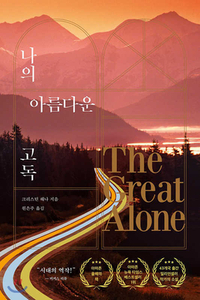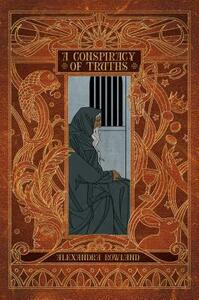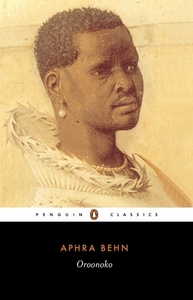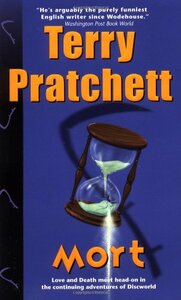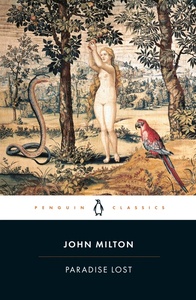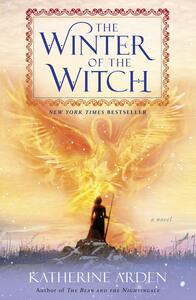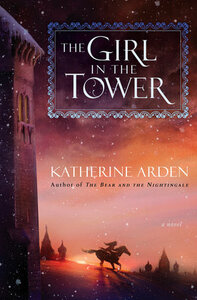Take a photo of a barcode or cover
theinquisitxor's Reviews (804)
"All this time, Dad had taught Leni how dangerous the outside world was. The truth was that the
biggest danger of all was in her own home."
Leni Allbright and her family escape to the wilderness of Alaska with the idea that living off the land and homesteading will help her father's severe PTSD from the Vietnam War. Little do they know that as the days grow shorter and colder, it is not just the brutality of Alaskan winters they need to fear, but the brutality in their own home. Leni and her mother have to face the fact that they are on their own, and their survival depends on themselves.
This was an amazing, tour de force of a novel that I could not put down. Literally though, as I read it in less than 24 hours, staying up most of the night to finish it. I similarly got swept up in Kristin Hannah's other best selling novel, The Nightingale which I also read in a day. I have always wanted to go to Alaska and I've read many books with an Alaskan setting. This one is special however. I could so easily get swept up in the beauty, ruggedness and harshness of Alaska while still maintaining a grounded feeling through the Allbright family and their friends.
This is a novel centered on women. The women of Alaska who survive, the women who don't and those who do what they have to to ensure their survival. This is a novel about living with those consequences and the lengths Leni and her mother go to survive. There are also so many other amazing female characters who live in Kaneq who help the Allbright's and are badass women in their own rights. Then there is Ernt Allbright. I can't call him the villain because he has severe mental health issues as a result of being a POW during a time in which there was no treatment and recognization of such issues.
I'm not going to go too much more into the story and characters because of spoilers sake, but I started this book thinking that it would be more man vs. nature, but it turned out to be much more man vs. man. It also spans a longer period of time than I was expecting and reminded me a little of The Glass Castle by Jeanette Walls. And while The Great Alone is darker, it is still full of hope, positiveness and the themes of family, friendship, and survival.
biggest danger of all was in her own home."
Leni Allbright and her family escape to the wilderness of Alaska with the idea that living off the land and homesteading will help her father's severe PTSD from the Vietnam War. Little do they know that as the days grow shorter and colder, it is not just the brutality of Alaskan winters they need to fear, but the brutality in their own home. Leni and her mother have to face the fact that they are on their own, and their survival depends on themselves.
This was an amazing, tour de force of a novel that I could not put down. Literally though, as I read it in less than 24 hours, staying up most of the night to finish it. I similarly got swept up in Kristin Hannah's other best selling novel, The Nightingale which I also read in a day. I have always wanted to go to Alaska and I've read many books with an Alaskan setting. This one is special however. I could so easily get swept up in the beauty, ruggedness and harshness of Alaska while still maintaining a grounded feeling through the Allbright family and their friends.
This is a novel centered on women. The women of Alaska who survive, the women who don't and those who do what they have to to ensure their survival. This is a novel about living with those consequences and the lengths Leni and her mother go to survive. There are also so many other amazing female characters who live in Kaneq who help the Allbright's and are badass women in their own rights. Then there is Ernt Allbright. I can't call him the villain because he has severe mental health issues as a result of being a POW during a time in which there was no treatment and recognization of such issues.
I'm not going to go too much more into the story and characters because of spoilers sake, but I started this book thinking that it would be more man vs. nature, but it turned out to be much more man vs. man. It also spans a longer period of time than I was expecting and reminded me a little of The Glass Castle by Jeanette Walls. And while The Great Alone is darker, it is still full of hope, positiveness and the themes of family, friendship, and survival.
You love them like their heart is a bird in your hand. You hold it so gently, and you cherish it
while you have it, you are filled with the wonder of it-and then they flutter their wings, and
you open your hands and let them fly. And you don't begrudge them in their flight, because
you held them for a few warm moments, and how often is it that that happens?
This was a good book, with a solid plot, characters and world building. It is a little slow and a little boring at points but overall I enjoyed the story. This is a story about stories and how they effect us, but also about what makes humans tick. This book is not what quite I was expecting (thats not a bad thing) and it told a good story. I was pleasantly surprised by world building, and in my opinion that was the biggest strength of the book. On a worldly level, we get such great descriptions of other lands and cultures by Chant, that make me wish that the book included a full map and the potential to explore these other places. Except we're stuck in Nuryevet, an icy, bleak northern land that we find out is much more than it appears. The politics of Nuryevet and the structure of society was incredibly well designed and interesting. The concept of the four rulers, marriage as a love and/or business contract as well as many other little designs shows that Rowland really put in her time and effort to creating a unique fantasy land.
The characters are also strong points of the story. Of course there is Chant, our narrator and storyteller who you progressively like more and more as the story progresses. He is unexpectedly funny, but I can't help to feel that sometimes I could not get a full understanding of his personality, nor could I fully form a persona of him in my mind. Ylfing was a great character and I started this book not expecting the amount of lgbt rep and equality shown in this story. Having several characters that would be considered lgbt was awesome and such a pleasant surprise. The society is also not Patriarchal which is such a breath of fresh air when almost all books are based on a patriarchal society.
The reason why this book got three stars is because the plot is slow, there are no huge revelations, and the story is told almost entirely from the view of a jail cell. While I usually like slower paced stories and ones that are more character driven, I feel like this still did not hold my attention as well as it could have. It also was not until about 200 pages in until the story actually started going somewhere. But I still liked it! I think this book is a good first book by an author that I look forward to seeing more of in the future. I will probably check out her next book, A Choir of Lies because of more Ylfing, world building and more stories is going to be awesome and I think Rowland's talents will only improve.
while you have it, you are filled with the wonder of it-and then they flutter their wings, and
you open your hands and let them fly. And you don't begrudge them in their flight, because
you held them for a few warm moments, and how often is it that that happens?
This was a good book, with a solid plot, characters and world building. It is a little slow and a little boring at points but overall I enjoyed the story. This is a story about stories and how they effect us, but also about what makes humans tick. This book is not what quite I was expecting (thats not a bad thing) and it told a good story. I was pleasantly surprised by world building, and in my opinion that was the biggest strength of the book. On a worldly level, we get such great descriptions of other lands and cultures by Chant, that make me wish that the book included a full map and the potential to explore these other places. Except we're stuck in Nuryevet, an icy, bleak northern land that we find out is much more than it appears. The politics of Nuryevet and the structure of society was incredibly well designed and interesting. The concept of the four rulers, marriage as a love and/or business contract as well as many other little designs shows that Rowland really put in her time and effort to creating a unique fantasy land.
The characters are also strong points of the story. Of course there is Chant, our narrator and storyteller who you progressively like more and more as the story progresses. He is unexpectedly funny, but I can't help to feel that sometimes I could not get a full understanding of his personality, nor could I fully form a persona of him in my mind. Ylfing was a great character and I started this book not expecting the amount of lgbt rep and equality shown in this story. Having several characters that would be considered lgbt was awesome and such a pleasant surprise. The society is also not Patriarchal which is such a breath of fresh air when almost all books are based on a patriarchal society.
The reason why this book got three stars is because the plot is slow, there are no huge revelations, and the story is told almost entirely from the view of a jail cell. While I usually like slower paced stories and ones that are more character driven, I feel like this still did not hold my attention as well as it could have. It also was not until about 200 pages in until the story actually started going somewhere. But I still liked it! I think this book is a good first book by an author that I look forward to seeing more of in the future. I will probably check out her next book, A Choir of Lies because of more Ylfing, world building and more stories is going to be awesome and I think Rowland's talents will only improve.
This was a sweeping novel covering roughly 100 years of history about the people and the town of Marstal, Denmark. From the 1840s when Marstal was one of most prominent sailing towns, to the end of WW2, this novel follows the lives of several different people who are all connected to one-another, as well as the history and progress of the town. At almost 700 pages, it is quite a large book and one full of rich detail. The cover is also one of the best book covers I have ever seen.
The book starts out with a man called Laurids Madsen, who according to the townspeople, "went up to heaven and came down again thanks to his boots.” After Laurids, his son, Albert Madsen takes over the narration as he learns how to be a sailor and travels the world in search of a certain someone. This was probably my favorite part of the novel. I have always wanted to sail and travel on a boat across the world. It is something that I would like to experience: the open ocean, the functions of a boat, life at sea. Reading this part of Albert's journey was great, reading about his travels, explorations and dangers he encountered made me feel like I was right there on the boat too.
The book then takes a slower turn as we return to Marstal and get to know the town and its occupants more. This part felt slow to me and there were a few scenes that made me cringe in kinda a gross way. These scenes felt very unnecessary and high-key grossed me out. Other than that, I accept that this slower section was important in the building of Marstal, the town's future and the introduction of the next set of characters. After Albert, the main focus is on his semi-adopted son, Knud Erik and his mother. While we sailed through the tropics with Albert, Knud Erik travels through the icy northern Atlantic. WW2 is at the very end of the book and Knud Erik and his group of sailors face the everyday reality of German U-boats, torpedoes and bombs. This last section was my second favorite and the last several pages were a bittersweet testament to all the characters we met in Marstal.
The book starts out with a man called Laurids Madsen, who according to the townspeople, "went up to heaven and came down again thanks to his boots.” After Laurids, his son, Albert Madsen takes over the narration as he learns how to be a sailor and travels the world in search of a certain someone. This was probably my favorite part of the novel. I have always wanted to sail and travel on a boat across the world. It is something that I would like to experience: the open ocean, the functions of a boat, life at sea. Reading this part of Albert's journey was great, reading about his travels, explorations and dangers he encountered made me feel like I was right there on the boat too.
The book then takes a slower turn as we return to Marstal and get to know the town and its occupants more. This part felt slow to me and there were a few scenes that made me cringe in kinda a gross way. These scenes felt very unnecessary and high-key grossed me out. Other than that, I accept that this slower section was important in the building of Marstal, the town's future and the introduction of the next set of characters. After Albert, the main focus is on his semi-adopted son, Knud Erik and his mother. While we sailed through the tropics with Albert, Knud Erik travels through the icy northern Atlantic. WW2 is at the very end of the book and Knud Erik and his group of sailors face the everyday reality of German U-boats, torpedoes and bombs. This last section was my second favorite and the last several pages were a bittersweet testament to all the characters we met in Marstal.
This was the last piece I read for my British Literature class this semester. Completely witty and a comical representation of the English aristocracy during the Restoration.
I chose the topic of Anna Komene for my Medieval History course paper. I've always kinda known about who Anna was, but researching this topic has brought me to a whole other level understanding, and I also got to finally read her history, The Alexiad, which has been on my tbr for a while now. Anna was a Byzantine Princess in the late 11th century and early 12th century. She is most known for her book that she wrote about the reign of her father, as well as her attempted usurpation of her brother. She would not have been able to do any of this without the education she received. This is a remarkable education of a woman of this time, and Anna was someone who clearly loved learning and valued her education above almost all else- which is something I can admire about her.
Her Alexiad is the story of her father, Emperor Alexois I. It follows the conventions of ancient Greek writing and Anna tried very hard to emulate the Iliad. I do not know a whole lot about Byzantium, so parts of this history went completely over my head and these parts I merely skimmed. Other parts were incredibly interesting and such a wonderful insight to how Anna thought and her personality shines through on many occasions. She loved Aristotle, formed her own literary circle with her husband that had some of the most prominent intellectuals in Constantinople and read works deemed too immoral for women to read. A lot of people may tell you that she studied in secret at night and read Homer by candle light, but there is no factual proof of this. She was a princess and heir to her father for several years, so it is a great possibility that she was allowed such an extensive education.
My paper goes into detail about the education she received and what she studied. It also discusses how Anna most likely did not care too much about societal gender barriers growing up as a Princess because everything was automatically assumed to her. It would't be until later when she was writing her history in semi-exile that she would have to address the problem of a gender barrier as a woman writer. She surpasses this barrier masterfully, and this is mainly due to her extensive training in rhetoric. Her education is the reason why she is still being studied today and she will probably always remain one of my favorite historical people.
Her Alexiad is the story of her father, Emperor Alexois I. It follows the conventions of ancient Greek writing and Anna tried very hard to emulate the Iliad. I do not know a whole lot about Byzantium, so parts of this history went completely over my head and these parts I merely skimmed. Other parts were incredibly interesting and such a wonderful insight to how Anna thought and her personality shines through on many occasions. She loved Aristotle, formed her own literary circle with her husband that had some of the most prominent intellectuals in Constantinople and read works deemed too immoral for women to read. A lot of people may tell you that she studied in secret at night and read Homer by candle light, but there is no factual proof of this. She was a princess and heir to her father for several years, so it is a great possibility that she was allowed such an extensive education.
My paper goes into detail about the education she received and what she studied. It also discusses how Anna most likely did not care too much about societal gender barriers growing up as a Princess because everything was automatically assumed to her. It would't be until later when she was writing her history in semi-exile that she would have to address the problem of a gender barrier as a woman writer. She surpasses this barrier masterfully, and this is mainly due to her extensive training in rhetoric. Her education is the reason why she is still being studied today and she will probably always remain one of my favorite historical people.
I read this for my British Literature class and this sure is an interesting little proto-novel. I’m glad to know that Aphra Behn is becoming a more known and studied author within the past 20 years, especially since she was largely forgotten for a few centuries.
It’s one I was looking forward to reading, but overall I thought it was okay. It does raise the question of slavery to nation involved in the slave trade, but it does have its faults. I’m going to be using this text for a part of my final paper so over the next 2 weeks I’ll be looking at it much closer.
It’s one I was looking forward to reading, but overall I thought it was okay. It does raise the question of slavery to nation involved in the slave trade, but it does have its faults. I’m going to be using this text for a part of my final paper so over the next 2 weeks I’ll be looking at it much closer.
This was my first Discworld book that I’ve read which was for the book club I’m in, and I really enjoyed it! Definitely will have to read the more of the discworld books. I know everyone says this, but Terry Pratchett is such a good writer and the humor in this book made it a lot of fun to read.
Shall Truth fail to keep her word,
Justice Divine not hasten to be just?
But Death comes not at call, Justice Divine
Mends not her slowest pace for prayers or cries.
O woods, O fountains, hillocks, dales and bow'rs,
With other echo late I taught your Shades
To answer, and resound far other song.
These are some of my favorite lines from Paradise Lost (Book 10 lines 886-863). I read this for my British Literature class this semester and I find it hard to rate a book like this. On one hand, this is the first epic poem that I have read and I have no others to compare it to. Reading this for a college class with a great professor and a great class has made me enjoy it much more than if I had read it entirely on my own. There are so many things to talk about in Paradise Lost and a simple review will not even begin to cover half of the things.
For Milton to dictate this poem while he was blind astounds me, and I think there is something to be said for a blind man writing about the darkness of hell. The poem starts out with a very epic, awesome anti-hero, Satan. You can't help but like him and his fiery lake, legions of demons and superiority complex. God and Heaven fall a bit flat in the beginning, but that's what Milton wants you to feel. He wants you to be tempted by the bad guy and to think "hey, Satan isn't too wrong" but slowly, as the fall and evilness overwhelm him, he changes- and in the end, he simply slithers away and kind of fades away in the final scene of hell. By the end of the poem, you are now rooting for the two protagonists, Adam and Eve.
Adam and Eve are two interesting characters. As the protagonists of Epics go, they are certainly no Odysseus, or Aeneas. They are two humans who make a mistake that costs the rest of humanity because of it. This poem is more focused on unity, and working together. When Adam and Eve are separated, and mad at each other is when both display their worst attributes. The one thing that got me while reading this was the blatant misogyne. There are some parts of the poem that are very harsh on Eve and these parts made me extremely frustrated. Part of me understands the time period this poem was written in, but another part of me can't stop seeing how in the story of Adam and Eve, through its biblical context, is a story that has helped promote over 2000 years of misogynistic views.
As much as Milton degrades Eve at points, he also writes Eve as a character who was created not equal to Adam, but one that has the potential to be, and this potential is what drives her to eat the fruit. We came to the conclusion in class that it is God's fault for the fall. If He had created Eve as an equal and had not excluded her from certain conversations, she might not have been tempted. Despite this, there is a part in Book 10 that (as my professor believes) makes Eve the true protagonist of the poem. While Adam is in despair, and on a path that shows some similarities to Satan, it is Eve who is the intervening force that quite literally saves Adam (and possibly the rest of the human race). I argue that Eve is more the hero of the two because of this scene, and it does present a different view from the degrading things we've been hearing about her so far.
The very last line of the poem are some of the best. I can't imagine how much time Milton spent on crafting the last lines because they sum up so many themes of the entire poem. Themes of leaving home, possibility, choice, union out of multiplicity, and ultimately of hope.
Some natural tears they dropped, but wiped them soon;
The World was all before them, where to choose
Their place of rest, and Providence their guide:
They hand in hand with wandering steps and slow,
Through Eden took their solitary way.
My university offers courses just on Milton and Paradise Lost, and down the road, I hope to take one of these course myself. Re-visiting this poem and spending an entire semester on it sounds like something I would like to do. This review turned into a bit of a essay, but I had a lot of thoughts I needed to share!
Justice Divine not hasten to be just?
But Death comes not at call, Justice Divine
Mends not her slowest pace for prayers or cries.
O woods, O fountains, hillocks, dales and bow'rs,
With other echo late I taught your Shades
To answer, and resound far other song.
These are some of my favorite lines from Paradise Lost (Book 10 lines 886-863). I read this for my British Literature class this semester and I find it hard to rate a book like this. On one hand, this is the first epic poem that I have read and I have no others to compare it to. Reading this for a college class with a great professor and a great class has made me enjoy it much more than if I had read it entirely on my own. There are so many things to talk about in Paradise Lost and a simple review will not even begin to cover half of the things.
For Milton to dictate this poem while he was blind astounds me, and I think there is something to be said for a blind man writing about the darkness of hell. The poem starts out with a very epic, awesome anti-hero, Satan. You can't help but like him and his fiery lake, legions of demons and superiority complex. God and Heaven fall a bit flat in the beginning, but that's what Milton wants you to feel. He wants you to be tempted by the bad guy and to think "hey, Satan isn't too wrong" but slowly, as the fall and evilness overwhelm him, he changes- and in the end, he simply slithers away and kind of fades away in the final scene of hell. By the end of the poem, you are now rooting for the two protagonists, Adam and Eve.
Adam and Eve are two interesting characters. As the protagonists of Epics go, they are certainly no Odysseus, or Aeneas. They are two humans who make a mistake that costs the rest of humanity because of it. This poem is more focused on unity, and working together. When Adam and Eve are separated, and mad at each other is when both display their worst attributes. The one thing that got me while reading this was the blatant misogyne. There are some parts of the poem that are very harsh on Eve and these parts made me extremely frustrated. Part of me understands the time period this poem was written in, but another part of me can't stop seeing how in the story of Adam and Eve, through its biblical context, is a story that has helped promote over 2000 years of misogynistic views.
As much as Milton degrades Eve at points, he also writes Eve as a character who was created not equal to Adam, but one that has the potential to be, and this potential is what drives her to eat the fruit. We came to the conclusion in class that it is God's fault for the fall. If He had created Eve as an equal and had not excluded her from certain conversations, she might not have been tempted. Despite this, there is a part in Book 10 that (as my professor believes) makes Eve the true protagonist of the poem. While Adam is in despair, and on a path that shows some similarities to Satan, it is Eve who is the intervening force that quite literally saves Adam (and possibly the rest of the human race). I argue that Eve is more the hero of the two because of this scene, and it does present a different view from the degrading things we've been hearing about her so far.
The very last line of the poem are some of the best. I can't imagine how much time Milton spent on crafting the last lines because they sum up so many themes of the entire poem. Themes of leaving home, possibility, choice, union out of multiplicity, and ultimately of hope.
Some natural tears they dropped, but wiped them soon;
The World was all before them, where to choose
Their place of rest, and Providence their guide:
They hand in hand with wandering steps and slow,
Through Eden took their solitary way.
My university offers courses just on Milton and Paradise Lost, and down the road, I hope to take one of these course myself. Re-visiting this poem and spending an entire semester on it sounds like something I would like to do. This review turned into a bit of a essay, but I had a lot of thoughts I needed to share!
“There are no monsters in the world, and no saints. Only infinite shades woven into the same tapestry, light and dark. One man’s monster is another man’s beloved. The wise know that.”
It's been a few hours since I finished this book and I still can't quite form what I want to say. I thought this was a beautiful, stunning and heartbreaking last book. I felt constantly surrounded by the atmospheric magic of the story, and I felt a sense of loss after finishing this book, something I have not felt after reading a book in a while. I was so caught up in the characters, the magic, the history and the writing that when I finished the book, I did feel this strange sense of loss and nostalgia.
This book had even more darker elements than the first two books. Within the first 50 pages one of the worst things happens to Vasya, and that effects her mentally throughout the rest of the book. Vasya's character developed so much in this book, and I can't help from absolutely loving her. She does the impossible in this book, and becomes someone so much more than the girl in the first and second books. This is one series that I could probably pick up the first book and start reading again right away- not because I felt like I missed things, but because I want to go right back into Vasya's world and savor each moment.
It's been a few hours since I finished this book and I still can't quite form what I want to say. I thought this was a beautiful, stunning and heartbreaking last book. I felt constantly surrounded by the atmospheric magic of the story, and I felt a sense of loss after finishing this book, something I have not felt after reading a book in a while. I was so caught up in the characters, the magic, the history and the writing that when I finished the book, I did feel this strange sense of loss and nostalgia.
This book had even more darker elements than the first two books. Within the first 50 pages one of the worst things happens to Vasya, and that effects her mentally throughout the rest of the book. Vasya's character developed so much in this book, and I can't help from absolutely loving her. She does the impossible in this book, and becomes someone so much more than the girl in the first and second books. This is one series that I could probably pick up the first book and start reading again right away- not because I felt like I missed things, but because I want to go right back into Vasya's world and savor each moment.
“Every time you take one path, you must live with the memory of the other: of a life left unchosen. Decide as seems best, one course or the other; each way will have its bitter with its sweet.”
This is such as lush, evocative trilogy, and Arden has done such a good job of creating the atmosphere and making very beautiful books. Hands down, this is the best book cover ever. I could stare at it all day and take in the details. This book has a faster plot and more things happen, but I can't quite like it as much as the first one. I think I enjoyed the setting of the first book more. But as the minutes go by and I am processing all that happened in this book, I still find it to be a very good second novel.
My favorite part of this novel was the beginning, when Vasya is a 'traveler' and sets out to see the world. Once she got roped into the politics and struggles of Moscow, I think the story lost a bit of it's wild, untamed nature that was present in the first book and beginning of this one. However, I loved meeting with Vasya's siblings again and getting to know them more. Other events also made the time spent in Moscow worthwhile (I won't get into them here for spoilers sake) and I connected to Vasya so much when she is struggling to find her purpose in the world and discover what she wants in life. Those lines spoke to me and I feel like we get a lot of characters who know their purpose and destiny (to some degree) but reading about a character who does not quite know what she wants was refreshing.
I also do not think that I connected quite as much to Morozoko as some other readers, but I will admit the last dialogue with him was a little heartbreaking. I have the last book sitting here next to me, which I will probably start tomorrow. Based off reviews about it, I better prepare myself for some serious heartbreak.
This is such as lush, evocative trilogy, and Arden has done such a good job of creating the atmosphere and making very beautiful books. Hands down, this is the best book cover ever. I could stare at it all day and take in the details. This book has a faster plot and more things happen, but I can't quite like it as much as the first one. I think I enjoyed the setting of the first book more. But as the minutes go by and I am processing all that happened in this book, I still find it to be a very good second novel.
My favorite part of this novel was the beginning, when Vasya is a 'traveler' and sets out to see the world. Once she got roped into the politics and struggles of Moscow, I think the story lost a bit of it's wild, untamed nature that was present in the first book and beginning of this one. However, I loved meeting with Vasya's siblings again and getting to know them more. Other events also made the time spent in Moscow worthwhile (I won't get into them here for spoilers sake) and I connected to Vasya so much when she is struggling to find her purpose in the world and discover what she wants in life. Those lines spoke to me and I feel like we get a lot of characters who know their purpose and destiny (to some degree) but reading about a character who does not quite know what she wants was refreshing.
I also do not think that I connected quite as much to Morozoko as some other readers, but I will admit the last dialogue with him was a little heartbreaking. I have the last book sitting here next to me, which I will probably start tomorrow. Based off reviews about it, I better prepare myself for some serious heartbreak.
